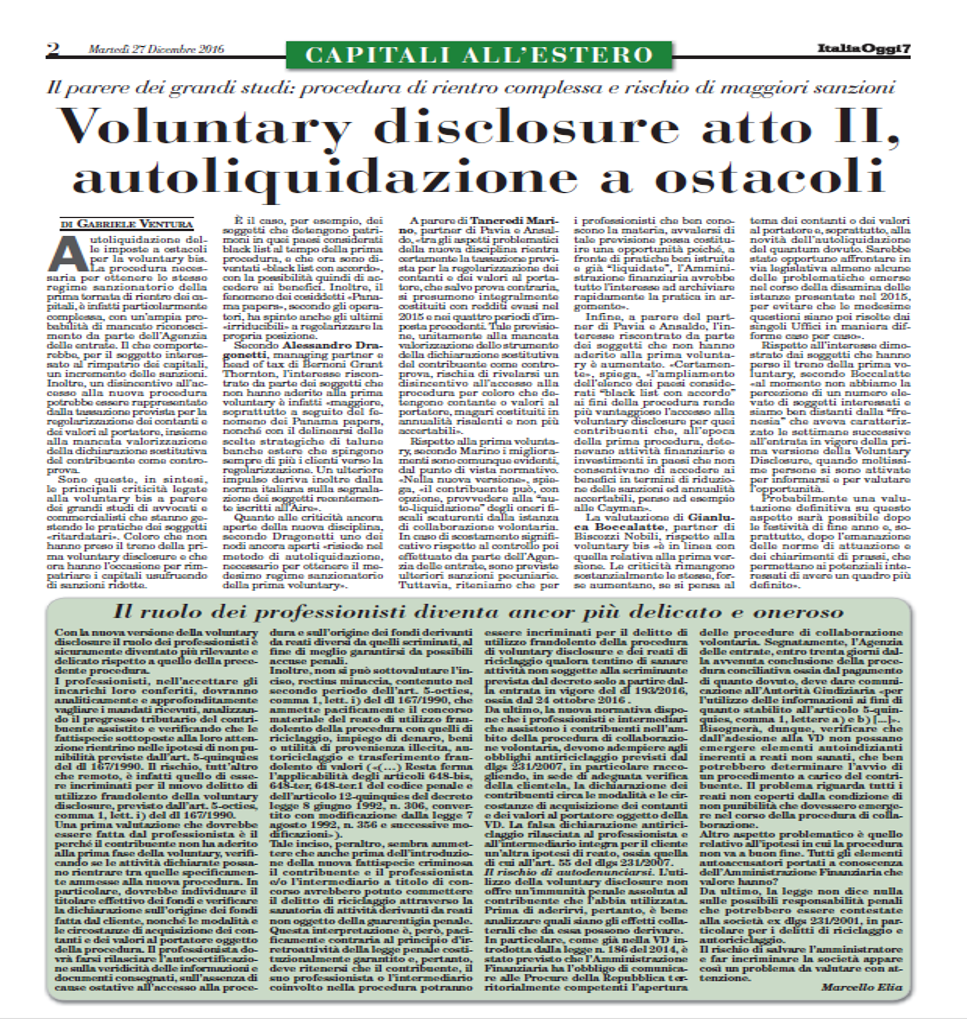According to the main professional firms, the procedure to repatriate funds held abroad is too complex and the risk exposure too high. Consultants will thus play a more delicate and onerous role.
The procedure to follow in order to obtain the application of the more favourable penalty system used in the first phase of the voluntary disclosure is very complex and the risk that the Tax Authorities will reject the application very high. And this would also imply higher penalties for those interested in repatriating capital. Furthermore, under the new regulation, on the one hand, additional penalties apply for the repatriation of cash and securities and, on the other hand, a taxpayer’s self-declaration will not be accepted as evidence of the operation. These are, in short, the main issues related to the voluntary disclosure bis according to the professionals who are dealing with those clients who did not benefit from the first phase of the programme and have now a second chance to regularise their tax position. This is the case for example of individuals holding capital in countries previously considered black list countries. According to Alessandro Dragonetti, Managing Partner and Head of Tax, “the interest of many individuals who did not benefit from the first phase of the voluntary disclosure programme has increased further to the so-called Panama papers scandal, as well as to the strategic choices of some foreign banks that are now advising their clients to settle their positions. In addition, a new norm was introduced in Italy providing for the notification of individuals recently registered with the Register of Italians Resident Abroad (AIRE)”. The main open issue, according to Dragonetti “is the self-assessment procedure needed to obtain the application of the same penalties applied in first phase of the voluntary disclosure.”

